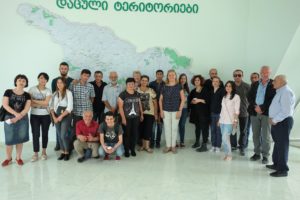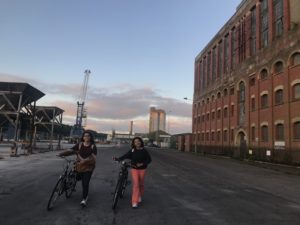
The regions of Imereti, Samegrelo, Samtskhe Javakheti and Shida Kartli
Cooperatives promote gender equality and combat energy poverty in Rural Georgia
Many people in rural Georgia, particularly women, are affected by energy poverty. Relying on unsustainably harvested firewood for their energy needs is expensive and labour-intensive and leads to health-damaging indoor air pollution as well as greenhouse gas emissions.
Non-governmental organization Women Engage for a Common Future (WECF) and local partners have developed solar water heaters and energy efficient stoves that reduce the need for firewood and improve comfort and health, bringing down air pollution, unpaid labour and energy bills by 20–50 per cent.



